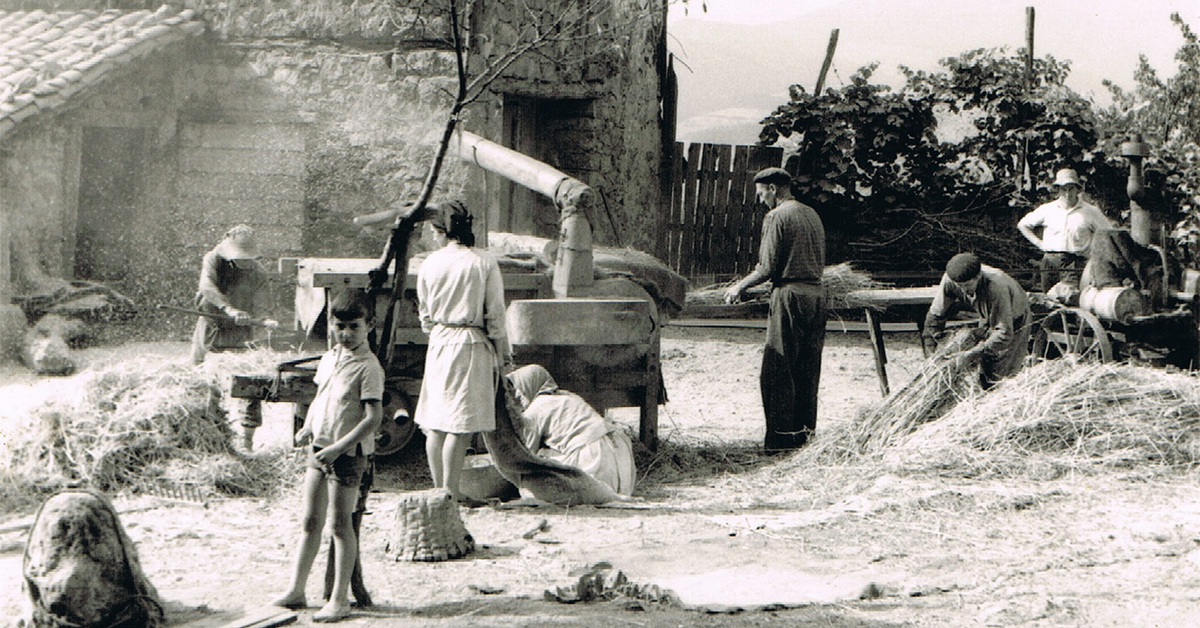Basque ethnography at a glance
Wheat was once a crop of great relevance in the territory of Bizkaia, wheat bread being an essential component in the diet of common folks. Abandonment of wheat took place from the 1950s onwards, because of the hard work and efforts which its cultivation required, and coinciding with the greater possibilities of buying the end product in shops and markets.
Despite the substantial importance of this crop, the excessive humidity of our climate, highly detrimental to its production, posed huge challenges. As a matter of fact, the annual wheat harvest would by no means be sufficient to meet the needs of the population, and importing became a must.
Saint Christopher is the patron saint of truckers and drivers in general, and his feast day is celebrated on 10 July. But what is the connection between them and the saint?
There is a very well-known legend, which Gurutzi Arregi was told by Balbina Arrese, whom she interviewed in Busturia, and which she recorded in her book entitled Ermitas de Bizkaia [Hermitages of Bizkaia]; other people from the same locality told us the same legend more recently in 2022. The legend is also widely shared around the world:
The legend goes that saint Christopher was a giant who spent his time helping people cross rivers, back in the time when there were no bridges. Once a small, but very heavy child wanted to cross the river. Christopher told him: “Not even the whole world is heavier than you”. To which the child responded: “You are not only carrying the world, but its creator. I am Jesus Christ, whom you are serving through your work”.
Txakolin(a) or Txakoli is the name of a wine traditionally made in part of the north of Spain and which has had denomination of origin status in Euskal Herria for some time now.
In the social and cultural arena, it is the name for a venue (building, commercial premises, etc.) where that drink could be enjoyed and was sold.
However, it is little known that it is also the name of the dance, performed throughout Bizkaia, Gipuzkoa and, to a lesser extent, Araba, with variations in choreography, melody and lyrics.

St John’s hermitage in Murgoitio. Berriz (Bizkaia). José Ignacio García Muñoz. Labayru Fundazioa Photographic Archive.
Between dawn and sunrise on St John’s Day, it is customary to place an oak or ash branch decorated with a bunch of herbs and flowers on front doors of houses and hermitages dedicated to the saint. Ears of wheat would also be added to the arrangement in earlier times, and a peeled splinter inserted in the wood of the branch to make a rustic cross. St John’s oak bouquet (sanjuan-haretxa, in Basque) is in point of fact a traditional symbol of the summer solstice.




